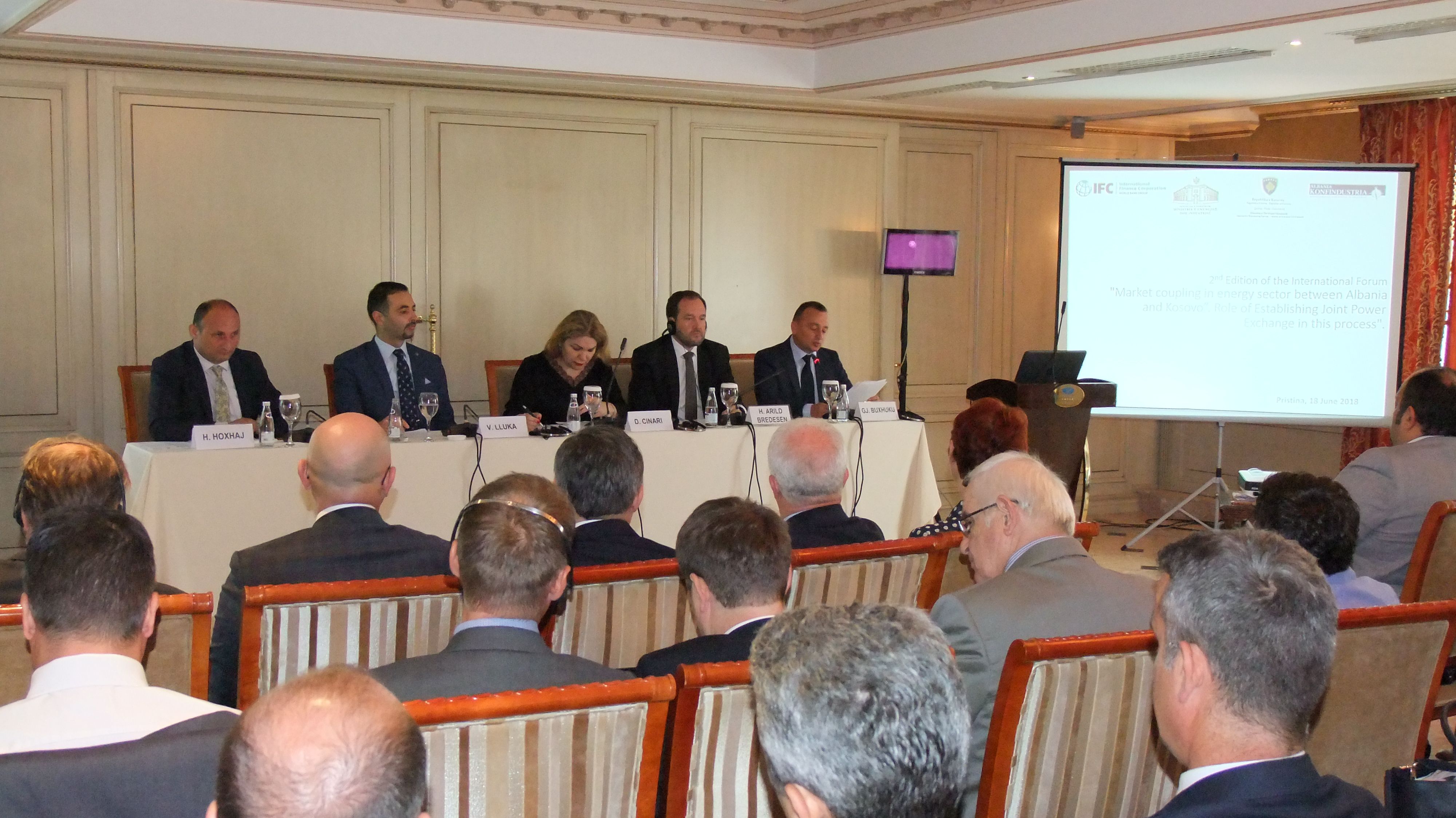Lluka informs the public on the activation of the Energy Exchange in the beginning of 2019
Prishtinë, 18.06.2018 – The common energy exchange serves as means for the placement of a referent price in the domestic market, which enables greater liquidity and competition development in the market, while the union of Kosovo and Albania energy markets will increase the economic welfare of both countries and will bring benefits for them, said the Minister of Economic Development Valdrin Lluka.
The head of MED made these comments today, during the Second International Forum “Energy sector market union Albania-Kosovo – Role of the establishment of a common energy exchange in this process,” held in Prishtina under the organization of AlbKonfindustria, with support from the Ministry of Economic Development of Kosovo and Ministry of Infrastructure and Energy of Albania, and attended by representatives of energy sector institutions, USAID, EnCT, etc.
Speaking on the process, Lluka said that both parties are working on the implementation of the guideline for European energy integration. “Two memorandums of understanding were signed, one in 2014 on the integration of Kosovo and Albania markets, and one in 2017 on the establishment of the energy exchange,” he said.
According to him, shareholders of this energy exchange will be OSHE and KOSTT, but there is also space for other operators that want to be part of it. For this purpose, a common group was established to work on the operationalization of this important project for the country.
Minister Lluka reiterated that the problem with Serbia, which is not respecting the energy agreement, makes the integration of the market with Albania and inclusion of KOSTT in the Albanian exchange impossible.
He said that the Government remains intensively engaged on daily basis, utilizing all mechanisms available to it, towards regulating and finalizing this agreement. On the other hand, he informed that there are positive movements and that by the end of this year Kosovo is expected to be an independent energy unit, meaning that the exchange should be operational from the beginning of 2019.
On the other hand, Dorina Cinari, Deputy Minister of Infrastructure and Energy of Albania, said that the National Energy Strategy for Albania 2030 stipulates the development indicators for this sector.
According to her, this strategy envisages the development of national energy sources, an integrated energy market, based on principles of market economy, to meet the energy demand and ensure sustainable economic development by providing regular energy supply, protecting the environment and increasing welfare at minimum social cost.
Hans Arild Bredesen, from Nord Pool Consulting, spoke on the advantages of the exchange and common energy market, as well as on the roles of participating entities.
Making comparisons to energy markets of Scandinavian countries, such as Sweden and Norway, said that the energy systems of Kosovo and Albania, the former based on coal and the latter on hydro energy, are complementary for each-other and yield mutual benefits, at the same time enabling energy circulation in the market at the lowest possible prices.

